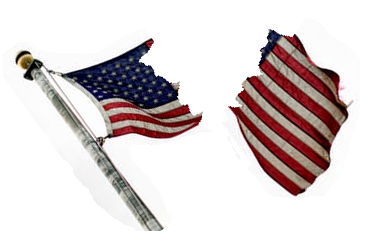Thanks, Joe.
I think your concept of de-polarization is crucial. As the NY Times Columnist
Thomas Friedman notes, the heightened polarization has indeed resulted in a profound dysfunctional shift in our governance structures. You example of eliminating the super-majority is an excellent one. Unfortunately, it is just one of many.
It will be interesting to see how the future unfolds. Although there are many forces resulting in many remarkable changes, I think we should be looking for investments and
efforts that work to build mutual relational value and social influence. That affords a constructive vision for us across socio-ecological levels (i.e., dyadic, family, community, state, globe).
Best,
Gregg
From: tree of knowledge system discussion <[log in to unmask]>
On Behalf Of Joseph Michalski
Sent: Friday, October 12, 2018 2:35 PM
To: [log in to unmask]
Subject: Re: Enhancing Relationships and Connections
Thanks Gregg. These are powerful examples that lend support to basic ToK/UTUA principles we have discussed here, especially around J-I-I. The "assets-based" approach has been a staple of social work
interventions for more than two decades, while these community-based initiatives have been in vogue for quite some time too. We have ample evidence of their potential positive impacts, provided you have the investments of the key stakeholders across sectors,
some real financial and social capital to deploy (including basic infrastructure, like schools and healthcare), and perhaps most important, a willingness to "share resources" and "coordinate investments." That latter point often proves the most difficult.
For example, we have many resources up here in London Ontario to fashion a host of creative responses to issues such as mental health problems, drug addictions, and homelessness. Yet almost every service provider complains about the lack of integration & coordination
of services, the turf battles, and their own survival as an organization, rather than necessarily putting their clients or the community first.
Indeed, historical & comparative data have long shown the power of social forces to break down barriers & help create mutually beneficial arrangements or what I refer to as "de-polarization." For
example, one could read Goodwins' historical account of Lincoln's presidency (Team of Rivals) and identify compelling evidence of the importance of appointing oppositional "political forces" to one's "team" (cabinet), where they're almost forced to
work together. I was commenting the other day that eliminating the super-majority, or 60 votes, for "cloture" in the Senate - thus eliminating the the potential threat of the filibuster - and the replacement with a simple majority means that whoever's in power
can get things out of committee by a simple majority and then "win" with a majority vote. If you required 2/3 or even 3/5, then you'd be compelled to work much more with your rivals & avoid the problem of strict voting by party lines. Similarly, the comparative
evidence repeatedly points to the importance of forming tribal cross-linkages and enhancing interdependence as a means of reducing conflict and, in the extreme, avoiding warfare. Colson's work on the Plateau Tonga comes to mind, where members of opposing tribes
would encourage inter-tribal marriage as a means of alleviating the conflict.
I might also recommend Gregg's blog from last December that deals with the dysfunctional split between Democrats & Republicans, which resonates with some of the above as well:
https://www.psychologytoday.com/ca/blog/theory-knowledge/201712/our-divided-america
|
Our country needs therapy for its split identity. |
All best regards, -Joe
Dr. Joseph H. Michalski
Associate Academic Dean
King’s University College at Western University
266 Epworth Avenue
London, Ontario, Canada N6A 2M3
Tel: (519) 433-3491
Fax: (519) 963-1263
Email:
[log in to unmask]
______________________
eið + 1 = 0
Experience the King’s difference at our Open House on Saturday November 3rd, 12-4pm! Tour the campus, talk to faculty and students, and attend info sessions catered
to your interests. Sign
up for Open House today!
From: tree of knowledge system discussion <[log in to unmask]>
on behalf of Henriques, Gregg - henriqgx <[log in to unmask]>
Sent: Friday, October 12, 2018 12:42 PM
To: [log in to unmask]
Subject: Enhancing Relationships and Connections
Hi List,
I have had several conversations with folks lately about social forces, fostering connections, and creating visions that enhance mutual relational value. (Pretty much the opposite
of the polarization and attacks that our political class reminds us of daily).
Here are two articles from David Brooks that are in this vein and worth reading.
Best,
Gregg
############################
To unsubscribe from the TOK-SOCIETY-L list: write to:
mailto:[log in to unmask] or click the following link:
http://listserv.jmu.edu/cgi-bin/wa?SUBED1=TOK-SOCIETY-L&A=1
############################
To unsubscribe from the TOK-SOCIETY-L list: write to:
mailto:[log in to unmask] or click the following link:
http://listserv.jmu.edu/cgi-bin/wa?SUBED1=TOK-SOCIETY-L&A=1
